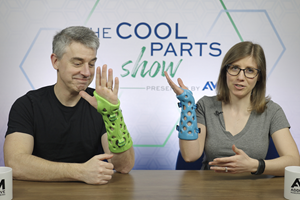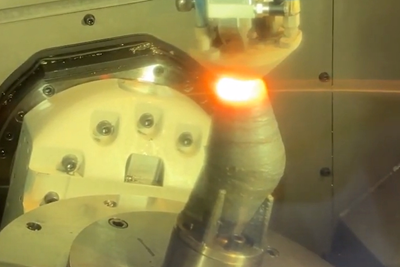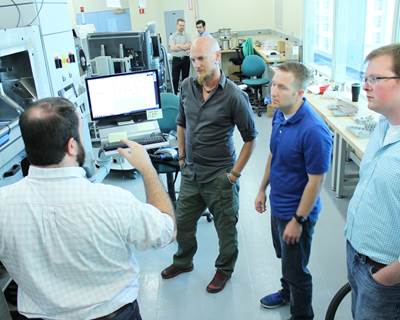Stratasys Terminates Merger Agreement With Desktop Metal
Stratasys is now exploring strategic alternatives to maximize shareholder value, while its board of directors is adopting a limited extension of the shareholder rights plan.
Share
Read Next
Stratasys’ most recent 3D printing technology, SAF enables quick means of mass production for end-use parts. Photo Credit: Additive Manufacturing
Stratasys, a provider of polymer 3D printing solutions, is terminating its merger agreement with Desktop Metal. It is now exploring strategic alternatives to maximize shareholder value, while its board of directors is adopting a limited extension of the shareholder rights plan.
This decision follows its announcement that, based on its preliminary count of votes cast at Stratasys’ Extraordinary General Meeting of Shareholders (EGM), the shareholders did not approve the terms of the previously announced merger agreement with Desktop Metal which was dated May 25, 2023. Accordingly, Stratasys has terminated the merger agreement. The final, certified voting results for the Stratasys EGM will be provided in a Form 6-K to be furnished to the U.S. Securities and Exchange Commission, which Stratasys expects to occur within four business days.
The company says the comprehensive process to maximize shareholder value will begin immediately. Potential strategic alternatives to be explored or evaluated may include but are not limited to a strategic transaction, potential merger, business combination or sale.
“We have decided to undertake a comprehensive and thorough review of all available strategic alternatives,” says Dov Ofer, Stratasys’ board of directors chairman. “We are entering this review as the leader in the additive manufacturing space and will continue to execute our strategy, powered by innovation and profitable growth, which has led Stratasys to outpace the competition. Importantly, we remain focused on our mission to deliver value to customers and are committed to taking the appropriate actions to maximize value for all Stratasys shareholders.”
The company says there can be no assurance that its strategic review process will result in any transaction or other strategic outcome. Stratasys does not intend to disclose further developments on this strategic review process unless and until it determines that such disclosure is appropriate or necessary.
Additionally, the Stratasys board of directors has unanimously adopted an amendment to Stratasys’ shareholder Rights Plan pursuant to which the expiration date of the Rights Plan was extended for three months. The Rights Plan is not intended to prevent or interfere with any action with respect to Stratasys that the board determines to be in the best interests of the company and its shareholders. Instead, it will support the board’s ability to carry out its strategic review process and position the board to fulfill its fiduciary duties on behalf of all shareholders by ensuring the board is able to evaluate all options to maximize shareholder value, and preserve for all shareholders the long-term value of the company in the event of a takeover or acquisition of a controlling stake without the payment of a control premium for all Stratasys ordinary shares.
Additional details about the Rights Plan extension will be included in a separate Form 6-K to be furnished by Stratasys to the SEC.
- Additive Manufacturing’s Fiona Lawler recently toured Stratasys’ Belton production facility in Texas. Read how it is growing to support its various 3D printing applications for mass production in industries such as automotive and aerospace.
- Learn about the Stratasys partnership with CollPlant Biotechnologies for industrial-scale bioprinting of tissues, organs. The joint development and commercialization agreement will initially focus on development of a bioprinting solution for CollPlant’s regenerative breast implants, addressing $2.6 billion market opportunity.
Related Content
AM 101: Digital Light Synthesis (DLS)
Digital Light Synthesis (DLS) is the name for Carbon's resin-based 3D printing process. How it works and how it differs from stereolithography.
Read MoreAirless Basketball Shows Promise of 3D Printed Lattices: The Cool Parts Show Bonus
Successfully matching the performance of a standard basketball demonstrates the control possible over the mechanical properties of digital materials.
Read More8 Cool Parts From RAPID+TCT 2022: The Cool Parts Show #46
AM parts for applications from automotive to aircraft to furniture, in materials including ceramic, foam, metal and copper-coated polymer.
Read MoreActivArmor Casts and Splints Are Shifting to Point-of-Care 3D Printing
ActivArmor offers individualized, 3D printed casts and splints for various diagnoses. The company is in the process of shifting to point-of-care printing and aims to promote positive healing outcomes and improved hygienics with customized support devices.
Read MoreRead Next
Hybrid Additive Manufacturing Machine Tools Continue to Make Gains (Includes Video)
The hybrid machine tool is an idea that continues to advance. Two important developments of recent years expand the possibilities for this platform.
Read More4 Ways the Education and Training Challenge Is Different for Additive Manufacturing
The advance of additive manufacturing means we need more professionals educated in AM technology.
Read MoreAt General Atomics, Do Unmanned Aerial Systems Reveal the Future of Aircraft Manufacturing?
The maker of the Predator and SkyGuardian remote aircraft can implement additive manufacturing more rapidly and widely than the makers of other types of planes. The role of 3D printing in current and future UAS components hints at how far AM can go to save cost and time in aircraft production and design.
Read More

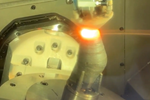


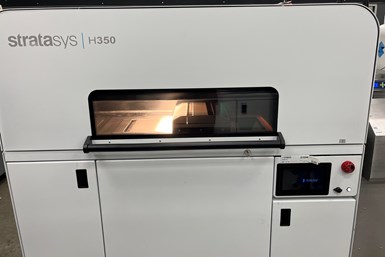
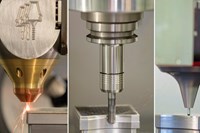


.png;maxWidth=300;quality=90)











